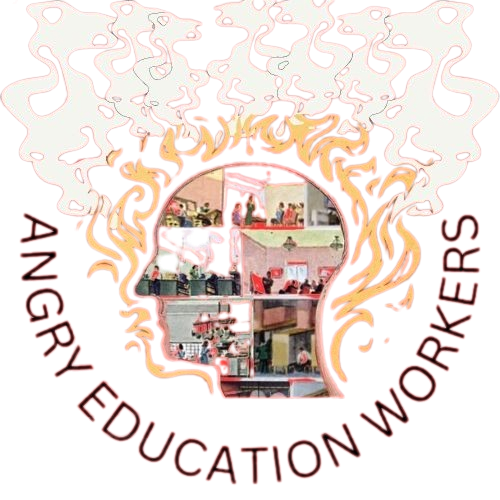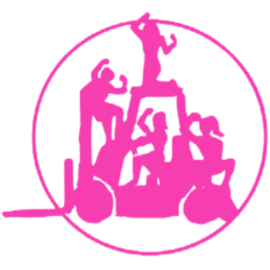Featured Resources
These are sources members of the collective have discovered that we feel have been especially useful for our recent research projects.
The Kids Are Alright: A School Workers’ Inquiry
by A group of school workers // This inquiry is a write-up of a discussion between a group of school workers earlier this year, where we came together to discuss the changing nature of schools, the role they play in capitalist society, and the current state of worker-organisation in the sector. All of us currently work or have worked various different jobs in schools - such as as a receptionist, teaching assistant, professional services and, of course, as teachers. Between us, we represent various different stages in the education system, from primary schools to secondary schools to sixth form colleges, as well as experience organising in various different education unions.

The kids are alright. They are a source of hope and joy in the constant humour, resistance and inspiration that they provide. And perhaps, as school workers, we could also learn a thing or two from them, in how they rebel against the injustices of our world. In the long run teachers and students are on the same side in the struggle for a liberated education system and wider society.
The short winter of inflation - Angry Workers
Translated from: analyse & kritik, Zeitung für linke Debatte & Praxis, No. 705, June 18, 2024 There are enough poor people in rich Germany – but why is it still so quiet here? By Christian Frings When the inflation rate in Germany skyrocketed from March 2022 and for a short time – from September 2022

Parallel to the introduction of social insurance, the establishment and legal protection of trade unions developed as the representation exclusively of this part of the proletariat, the “wage laborers”, who can proudly point out that they live from “their own hands’ honest work”. In the early days of modern mass trade unions after the largely spontaneous Europe-wide strike wave between 1889 and 1891, they were referred to as “strike prevention associations” by more critical minds in the workers’ movement. This was because the monopoly granted to them by the state and capital on the form of struggle of the strike in conjunction with peacemaking collective agreements was intended to put an end to the wild goings-on of work stoppages, factory occupations, sabotage and riots on the streets. Although it took two world wars, fascism and the Cold War for this model to become effectively established in the Global North, it still works quite well today with the very moderate use of strikes.
Petro Pete, Plastic Mascot for Plausible Denial
In 2016, the Oklahoma Energy Resources Board (OERB) published the fourth volume of its “Petro Pete” series of illustrated children’s books. To promote Petro Pete’s Big Bad Dream, K-2 classes throug…

For Zou and Wertz, the discrepancy between the underfunding of public schools caused, in part, by reductions to state appropriations for education and the OERB’s generous resources is a recipe for schools and teachers under strain to accept materials that “paint a rosy picture of fossil fuels in America’s classrooms” and send “mixed messages” about climate change. Two satirical television news programs that followed up on their exposé were more harsh.



